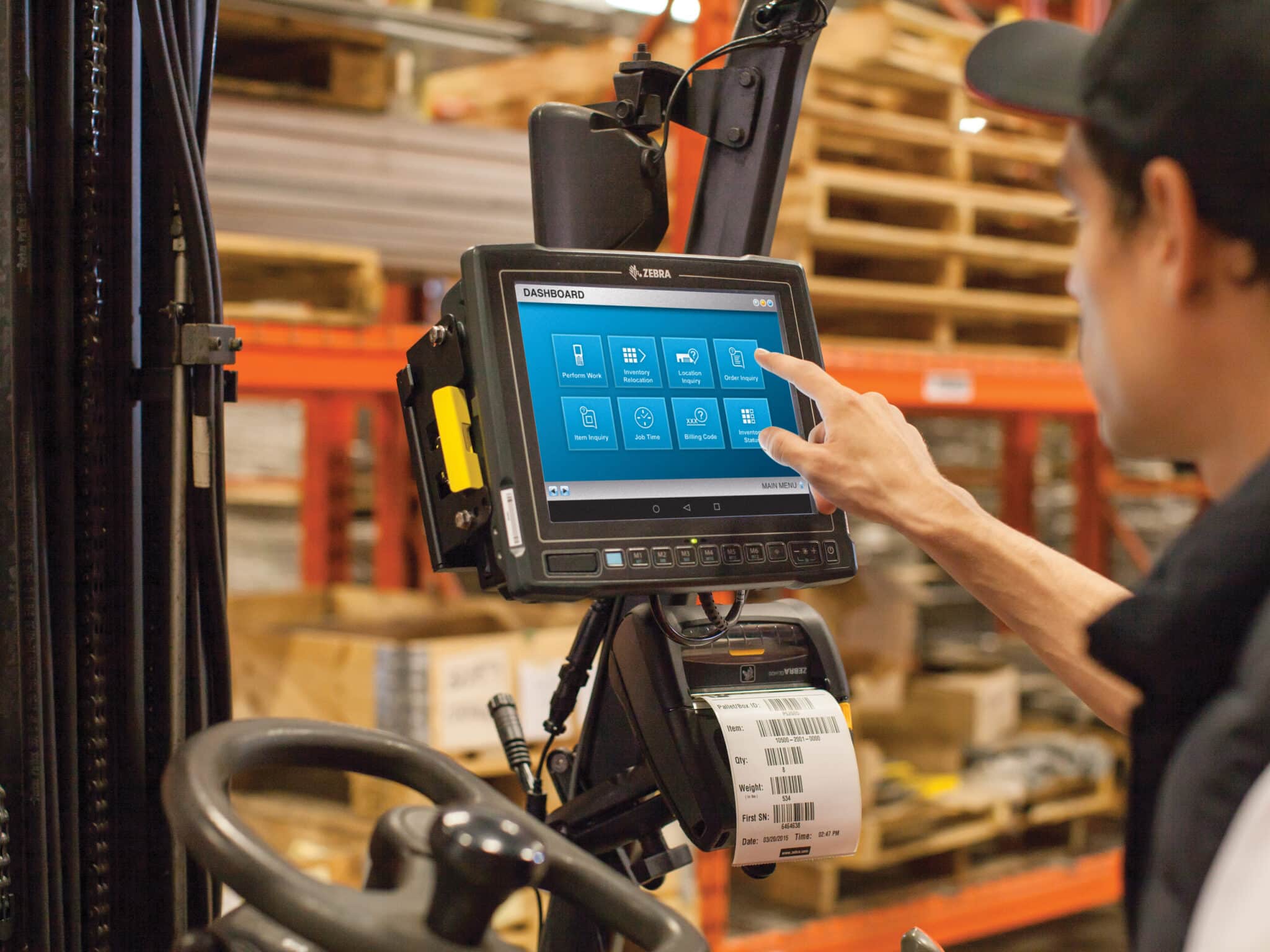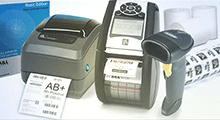The modern workforce is increasingly mobile. Today’s employees enjoy access to a range of devices and are expected to leverage these devices to improve their productivity and accuracy on the job.
This robust mobile infrastructure can provide many advantages, including improved efficiency, innovation, and oversight. We have mobile devices to thank for optimizing today’s data-driven supply chain and for driving huge improvements in efficiency and customer satisfaction in retail and eCommerce. These benefits are accompanied by a few downsides, however, and there’s no denying that managing such a wide array of devices and networks can be complicated.
Under the wrong approach, it is easy to get bogged down with redundant devices, excessive applications, and major security concerns. Add privacy complications and the rapidly escalating costs associated with maintaining a mobile workforce, and it’s easy to see why so many organizations are struggling to realize the full ROI of mobile solutions.
Therein lies the value of Managed Mobility Services (MMS). Offering a comprehensive approach to provisioning, deploying, and managing various networks, devices, and applications, this practice aims to control costs while boosting security. It is a critical part of the modern warehouse environment and also crucial for all aspects of logistics and supply chain management.
The right MMS strategy can help enterprises overcome common technology concerns, and, instead, encourage organizations to make full use of mobile innovations. Keep reading to learn what managed mobility strategies involve and why these solutions are non-negotiable in a truly mobile era.
What is Managed Mobility Services?
Managed mobility services (MMS) is an umbrella term used to describe a wide range of business and IT service offerings meant to optimize the use of mobile devices throughout the workforce. These services consolidate mobile planning, implementation, and data analysis, offering a more straightforward and easy-to-organize approach to mobile matters that can otherwise feel out of control. The goal: to offer a holistic range of services to boost agility and efficiency across the workforce. MMS achieves this through strong oversight and by offering support through every phase of the mobile lifecycle.
By outsourcing these tasks to a specialized provider, organizations can ensure that their mobile infrastructure is optimally maintained and secure, allowing them to focus on their core business functions. MMS providers offer expertise in managing various mobile operating systems and devices, implementing security protocols, and providing 24/7 support. This results in reduced operational costs, improved employee productivity, and improved data security, making MMS a crucial component for businesses navigating the complexities of modern mobile technology.
MMS is sometimes confused with Mobile Device Management (MDM), which focuses on the technical aspects of procuring, provisioning, and deploying mobile devices in the workforce. While this is important, MMS goes further, encompassing mobile support, wireless mobility management, and more. MDM is part of an overall managed mobility program.

Core Components of MMS
Managed mobility services can look dramatically different from one organization to the next. After all, versatility is built into this very concept. A lot depends on the types of mobile infrastructure required, whether the company operates under a BYOD (bring your own device) policy or a company-owned device policy, and how these elements are leveraged in the pursuit of ambitious organizational objectives. In general, however, MMS incorporates a few basic systems and processes:
Procurement
Centered around the acquisition of necessary devices or services, procurement involves everything from selecting suppliers and individual devices to standardizing those devices and establishing contracts. This ensures that employees maintain access to reliable devices and services while also reducing mobile-related expenses and maintaining full compliance.
Web-based portals can optimize the procurement process, exclusively highlighting approved devices while also offering tracking and consistent access to support services. Approval workflows can limit the likelihood of theft by ensuring that all orders are approved by authorized individuals.
Provisioning & Deployment
Once necessary devices or services have been selected and obtained, organizations can move forward with device provisioning. This occurs as devices are configured for eventual use by employees. Provisioning often begins with initial device setup but may also involve app installation, user authentication, and network configurations.
Finally, deployment brings structure to the process of distributing necessary devices. This practice also relates to how devices are used or managed over time. Devices may require strategic account setup processes, along with activation and, if necessary, the establishing of user-specific settings. Also important? Seamless integration with existing IT infrastructure.
Management
True end-to-end managed mobility solutions do not end with deployment. Rather, a range of management tasks ensure that devices continue to remain secure and easy to operate. Should problems arise, support should be available to get mobile devices returning to full function as quickly as possible.
- Mobile Device Management. As a crucial component of MMS, Mobile Device Management focuses exclusively on mobile devices, including the technical complications of configuring and securing them. This is a must for maintaining compliance and for streamlining critical IT functions.
- Support. Service centers and help desks provide valuable support through the entire lifecycle of each mobile device. Specialized programs can even limit downtime via exchanges or spares management. Meanwhile, help desk support delivers a reliable point of contact, ensuring swift solutions and strong resolution rates. Flexible offerings allow for assistance via phone or email, while advanced customer portals optimize the Repair Authorization (RA) process.
- Analytics & data collection. A data-driven approach to MMS can drive operational improvements, revealing where opportunities exist to improve productivity or limit unnecessary expenses. Real-time insights support decision-making, with actionable insights leading to swift solutions that address concerns involving productivity, security, or compliance.
- Telecom expense management. Telecom assets can be just as complicated to manage as mobile devices and applications. Telecom Expense Management (TEM) software tracks and organizes key telecom expenditures while streamlining complex processes via automation and a centralized platform.

The Benefits of End-To-End Managed Mobility Services
End-to-end MMS offers a wide range of benefits, applicable to businesses that depend on a mobile workforce. Key advantages include:
- Improved security. Mobile devices and applications are prone to security problems, and unfortunately, these can be difficult to track and address. MMS brings a systematic approach to improving mobile security, facilitating strict policy enforcement, data-at-rest encryption, threat detection, and many other advanced security solutions. Remote wiping of data is possible in the event that a device is lost or stolen.
- Cost savings. Poorly tracked and maintained devices are vulnerable to loss, theft, malfunction, or sheer redundancy. MMS avoids these problems by ensuring that leaders understand the full cost of mobile initiatives. This, in turn, can help reveal opportunities for saving and also brings a much-needed element of predictability to mobile expenditures.
- Improved productivity. Without a systematic approach, many mobile tasks can be surprisingly time-consuming. MMS streamlines critical functions so that employees promptly receive the devices they need — and so that they can use these devices to optimize their workflows. This may also encompass the automation of data entry and other time-consuming efforts. If these are streamlined via advanced technological solutions, employees are freed up to focus on other important matters.
- Expert support. MMS can feel overwhelming at the outset, but when leaders are implementing or optimizing these solutions, there’s no need to go about it alone. With end-to-end services, experts are always available to offer guidance or to assist with troubleshooting. This can provide powerful peace of mind, which is extra important when so many workplace systems and solutions rely on fully-functioning mobile devices.
Peak Technologies: Your Trusted Managed Mobility Service Provider
Interested in leveraging the power of Managed Mobility Services? Our experts at Peak Technologies are happy to help. Offering end-to-end MMS solutions, we emphasize customization. We understand that different organizations have dramatically different mobile infrastructure and may therefore have varying needs.
Our MMS offerings include everything from consulting (including mobility roadmap creation) to procurement and mobile support services. We also offer an intuitive end-user portal that makes it easy to view and manage information. Our goal: to remove the guesswork from MMS so you can feel confident that your mobile solutions will reach their full ROI.
As you prepare to take the next step in leveraging mobile solutions, look for a trusted MMS provider that emphasizes personalization. Get in touch today to learn more about Peak’s custom mobility services.



































